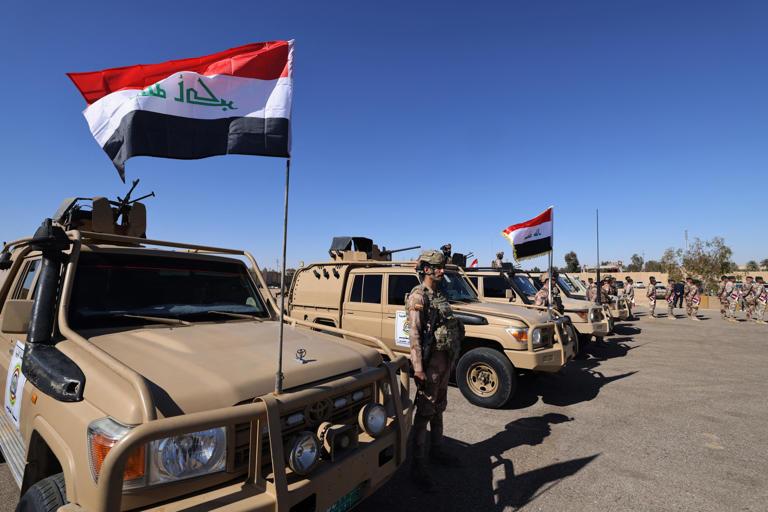
US Forces Attacked in Iraq: What We Know
In a developing situation, U.S. forces stationed at Iraq’s Al-Asad airbase came under attack on Monday, resulting in injuries to several American personnel, Reuters reported. The incident marks the latest in a series of assaults targeting U.S. interests in the region.
According to U.S. officials speaking on condition of anonymity to Reuters, the attack is believed to have involved rockets.
In a statement from the U.S. Department of Defense, Secretary Austin and Minister Gallant agreed that today’s Iran-aligned militia attack on U.S. forces stationed at Al-Asad Airbase in western Iraq marked a dangerous escalation and demonstrated Iran’s destabilizing role in the region. Secretary Austin provided an update on measures to strengthen U.S. military posture in the region in light of this escalating situation.
Security sources in Iraq reported that two Katyusha rockets were fired at the base. The Al-Asad airbase, located in western Iraq’s Anbar province, houses American troops and other international forces.
The exact number of injured U.S. personnel and the severity of their injuries remain unclear. The Pentagon has yet to release an official statement on the matter.
This attack comes amid heightened tensions in the region, particularly following the Israel-Hamas conflict that erupted in October 2023. U.S. forces in Iraq and Syria have faced numerous attacks in recent months, primarily from Iran-backed militias.
The recent assault follows a period of relative calm. The Iraqi militia campaign against U.S. troops was largely paused in February after the deaths of three U.S. soldiers in an attack at the border between Jordan and Syria drew intensive U.S. airstrikes against militia positions.
However, new U.S. strikes conducted on Monday in Iraq have again spurred outrage among militia groups. Sheikh Ali-Asadi, head of the Nujaba Movement Political Bureau, previously told Newsweek that these actions “give justification to the resistance factions and the Iraqi people to confront them and liberate their land from these forces that violate the rights and dignity of the Iraqis.”
The U.S. military’s presence in Iraq has been a contentious issue since the 2003 invasion. While American combat troops officially withdrew in 2011, they returned in 2014 to assist in the fight against the Islamic State (ISIS). Since then, the mission has evolved to focus more on training and advising Iraqi security forces.
Today, around 2,500 U.S. troops remain in the country on a training and advisory mission. Discussions over their fate and that of the broader U.S.-Iraq Strategic Framework Agreement began earlier this year through the U.S.-Iraq Higher Military Commission, but the Pentagon has signaled no plans to pull U.S. forces out entirely.
Newsweek reached out to CENTCOM via email on Monday evening for comment.
The president took to X, formerly Twitter, where he addressed the attack. Biden was briefed on developments and discussed steps to ensure safety for military forces.
Biden later posted that he had be in contact with the leader of Jordan to talk peace. He said, “Today, I connected with King Abdullah II of Jordan on our efforts to de-escalate regional tensions, including through an immediate ceasefire and hostage release deal.”
Florida Senator Rick Scott sent condolences on X, formerly Twitter after the tragedy while reaffirming America’s military strength overseas, saying, “Ann and I are praying for all our military members, especially those injured in this rocket attack.
“The United States must regain our strength abroad, which we’ve sadly lost under the Biden-Harris admin, and respond in whatever manner it takes to stop them from ever thinking about an attack like this again.”
Source » msn.com





